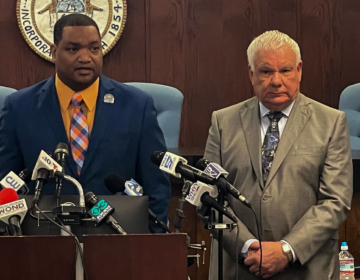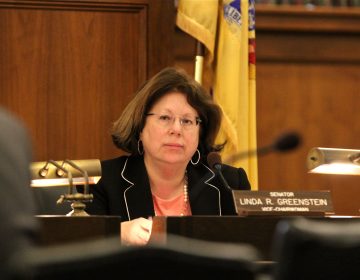South Jersey hospital-nurse standoff stuck in legal limbo
A battle involving the National Labor Relations Board (NLRB) has delayed resolution of a dispute over a September 2010 vote by nurses at a Salem County hospital to join a labor union.
A federal appeals court decision that President Barack Obama’s appointments of three of the NLRB’s five members were invalid has thrown many of the board’s recent rulings into doubt, including some that impact Memorial Hospital of Salem County and the Health Professional and Allied Employees (HPAE) union.
The hospital’s challenge to a ruling that the nurses’ vote was legitimate is on hold until NLRB’s situation is resolved, which may not occur until the U.S. Supreme Court rules on the matter.
The Salem dispute is one of several that have been brewing between the nurses’ union and for-profit hospital chains. Memorial Hospital is owned by Community Health Systems (CHS), a Tennessee-based for-profit company. Memorial became the first for-profit acute-care hospital in the state when CHS bought it in 2002.
“This is not even in CHS’s hands now,” said Bridget Devane, a public policy staff member for the union. “This is really a bigger battle that is surrounding the president and the labor board that we’re caught in.”
Devane said she believes that the hospital has been trying to stall unionization efforts as long as possible, using a variety of legal tactics.
The 2010 vote by the Salem nurses to unionize is contested by the hospital based on the status of charge nurses, who are responsible for ensuring that nurses are providing care at all times.
The hospital maintains that those nurses, who represent roughly half of the nurses who voted, are not eligible to join the union. The NLRB determined that nearly all of the charge nurses aren’t managers, since they don’t perform many managerial duties.
The hospital and union are also at odds over whether the union should have access to files describing disciplinary actions against nurses. Those files include patient information that the hospital maintains is confidential.
NLRB appointments contested
The composition of the NLRB Board members has long been a subject of political contention. The board is responsible for overseeing union elections and preventing unfair labor practices by both employers and unions.
President Obama has had difficulty getting the Senate to vote on his appointees to the board. In January 2012, he made three appointments, citing his authority to make appointments while Congress is in recess. However, opponents of the appointments said they were illegal because Congress was still formally in session. A federal appeals court ruled in favor of these opponents in January. The NLRB is appealing that decision to the Supreme Court.
Susan J. Schurman, dean of Rutgers’ School of Management and Labor Relations, said the status of charge nurses has become a heated point of dispute across the country, with the NLRB offering a shifting interpretation of the nurses’ union eligibility.
She added that without a functioning NLRB, the country has no system in place to deal with labor-management relations in the private sector.
“It’s really quite extraordinary,” Schurman said, noting that employers have increased their efforts in recent decades to contest unionization efforts.
“Since the 1980s, there is an increasing tactic of using any tool available within the law – and sometimes outside the law – to prevent unionization,” Schurman said.
Schurman said the president should have the ability to appoint members to the board.
“As a person who’s worked in this field really all of my career, we need a functioning NRLB to govern labor relations in the United States,” she said.
John Sarno, president of the Employers Association of New Jersey, said the uncertain status of the Memorial Hospital nurses reflects national uncertainty over whether charge nurses can join union nurses. He said that hospitals’ views on whether charge nurses should be eligible for union votes frequently depends on hospital officials’ views on whether the charge nurses are likely to vote to unionize.
Sarno, whose organization advises employers on employment law, said management concerns over unions generally focus on how they affect managerial flexibility.
“The union wage and the benefits package in the private sector is pretty comparable with or without a union,” Sarno said, adding that employers would prefer to make decisions on closing departments, outsourcing jobs or changing employees’ job classifications without having to negotiate those issues.
“That makes the decision making slower, less flexible and inefficient,” Sarno said.
Questions posed to CHS about the dispute were directed to hospital spokesman George Gennaoui, who emailed a brief statement noting the court proceedings have been placed “into abeyance” due to the court case invalidating the NLRB appointments.
_____________________________________________________________________
NJ Spotlight, an independent online news service on issues critical to New Jersey, makes its in-depth reporting available to NewsWorks.
WHYY is your source for fact-based, in-depth journalism and information. As a nonprofit organization, we rely on financial support from readers like you. Please give today.




